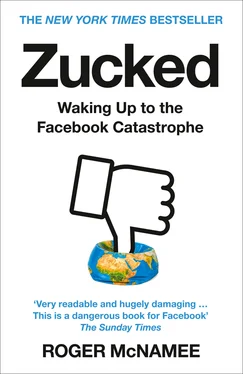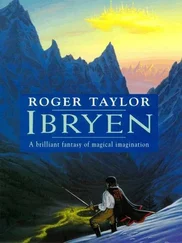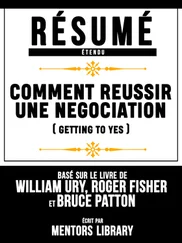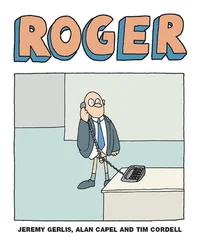Like Jimmy Stewart in the movie, I did not have enough data or insight to understand everything I had seen, so I sought to learn more. As I did so, in the days and weeks after the election, Dan Rose exhibited incredible patience with me. He encouraged me to send more examples of harm, which I did. Nothing changed. Dan never budged. In February 2017, more than three months after the election, I finally concluded that I would not succeed in convincing Dan and his colleagues; I needed a different strategy. Facebook remained a clear and present danger to democracy. The very same tools that made Facebook a compelling platform for advertisers could also be exploited to inflict harm. Facebook was getting more powerful by the day. Its artificial intelligence engine learned more about every user. Its algorithms got better at pressing users’ emotional buttons. Its tools for advertisers improved constantly. In the wrong hands, Facebook was an ever-more-powerful weapon. And the next US election—the 2018 midterms—was fast approaching.
Yet no one in power seemed to recognize the threat. The early months of 2017 revealed extensive relationships between officials of the Trump campaign and people associated with the Russian government. Details emerged about a June 2016 meeting in Trump Tower between inner-circle members of the campaign and Russians suspected of intelligence affiliations. Congress spun up Intelligence Committee investigations that focused on that meeting.
But still there was no official concern about the role that social media platforms, especially Facebook, had played in the 2016 election. Every day that passed without an investigation increased the likelihood that the interference would continue. If someone did not act quickly, our democratic processes could be overwhelmed by outside forces; the 2018 midterm election would likely be subject to interference, possibly greater than we had seen in 2016. Our Constitution anticipated many problems, but not the possibility that a foreign country could interfere in our elections without consequences. I could not sit back and watch. I needed some help, and I needed a plan, not necessarily in that order.
1 1 The Strangest Meeting Ever 2 Silicon Valley Before Facebook 3 Move Fast and Break Things 4 The Children of Fogg 5 Mr. Harris and Mr. McNamee Go to Washington 6 Congress Gets Serious 7 The Facebook Way 8 Facebook Digs in Its Heels 9 The Pollster 10 Cambridge Analytica Changes Everything 11 Days of Reckoning 12 Success? 13 The Age of Surveillance Capitalism 14 What Is to Be Done 15 What Government Can Do 16 What Each of Us Can Do Epilogue Appendix 1: Memo to Zuck and Sheryl: Draft Op-Ed for Recode Appendix 2: George Soros’s Davos Remarks: “The Current Moment in History” Bibliographic Essay Index Acknowledgments About the Author About the Publisher
The Strangest Meeting Ever 1 The Strangest Meeting Ever 2 Silicon Valley Before Facebook 3 Move Fast and Break Things 4 The Children of Fogg 5 Mr. Harris and Mr. McNamee Go to Washington 6 Congress Gets Serious 7 The Facebook Way 8 Facebook Digs in Its Heels 9 The Pollster 10 Cambridge Analytica Changes Everything 11 Days of Reckoning 12 Success? 13 The Age of Surveillance Capitalism 14 What Is to Be Done 15 What Government Can Do 16 What Each of Us Can Do Epilogue Appendix 1: Memo to Zuck and Sheryl: Draft Op-Ed for Recode Appendix 2: George Soros’s Davos Remarks: “The Current Moment in History” Bibliographic Essay Index Acknowledgments About the Author About the Publisher
New technology is not good or evil in and of itself. It’s all about how people choose to use it. —DAVID WONG
I should probably tell the story of how I intersected with Facebook in the first place. In the middle of 2006, Facebook’s chief privacy officer, Chris Kelly, sent me an email stating that his boss was facing an existential crisis and required advice from an unbiased person. Would I be willing to meet with Mark Zuckerberg?
Facebook was two years old, Zuck was twenty-two, and I was fifty. The platform was limited to college students, graduates with an alumni email address, and high school students. News Feed, the heart of Facebook’s user experience, was not yet available. The company had only nine million dollars in revenue in the prior year. But Facebook had huge potential—that was already obvious—and I leapt at the opportunity to meet its founder.
Zuck showed up at my Elevation Partners office on Sand Hill Road in Menlo Park, California, dressed casually, with a messenger bag over his shoulder. U2 singer Bono and I had formed Elevation in 2004, along with former Apple CFO Fred Anderson, former Electronic Arts president John Riccitiello, and two career investors, Bret Pearlman and Marc Bodnick. We had configured one of our conference rooms as a living room, complete with a large arcade video game system, and that is where Zuck and I met. We closed the door and sat down on comfy chairs about three feet apart. No one else was in the room.
Since this was our first meeting, I wanted to say something before Zuck told me about the existential crisis.
“If it has not already happened, Mark, either Microsoft or Yahoo is going to offer one billion dollars for Facebook. Your parents, your board of directors, your management team, and your employees are going to tell you to take the offer. They will tell you that with your share of the proceeds—six hundred and fifty million dollars—you will be able to change the world. Your lead venture investor will promise to back your next company so that you can do it again.
“It’s your company, but I don’t think you should sell. A big company will screw up Facebook. I believe you are building the most important company since Google and that before long you will be bigger than Google is today. You have two huge advantages over previous social media platforms: you insist on real identity and give consumers control over their privacy settings.
“In the long run, I believe Facebook will be far more valuable to parents and grandparents than to college students and recent grads. People who don’t have much time will love Facebook, especially when families have the opportunity to share photos of kids and grandkids.
“Your board of directors, management team, and employees signed up for your vision. If you still believe in your vision, you need to keep Facebook independent. Everyone will eventually be glad you did.”
This little speech took about two minutes to deliver. What followed was the longest silence I have ever endured in a one-on-one meeting. It probably lasted four or five minutes, but it seemed like forever. Zuck was lost in thought, pantomiming a range of Thinker poses. I have never seen anything like it before or since. It was painful. I felt my fingers involuntarily digging into the upholstered arms of my chair, knuckles white, tension rising to a boiling point. At the three-minute mark, I was ready to scream. Zuck paid me no mind. I imagined thought bubbles over his head, with reams of text rolling past. How long would he go on like this? He was obviously trying to decide if he could trust me. How long would it take? How long could I sit there?
Eventually, Zuck relaxed and looked at me. He said, “You won’t believe this.”
I replied, “Try me.”
“One of the two companies you mentioned wants to buy Facebook for one billion dollars. Pretty much everyone has reacted the way you predicted. They think I should take the deal. How did you know?”
“I didn’t know. But after twenty-four years, I know how Silicon Valley works. I know your lead venture investor. I know Yahoo and Microsoft. This is how things go around here.”
I continued, “Do you want to sell the company?”
He replied, “I don’t want to disappoint everyone.”
Читать дальше






